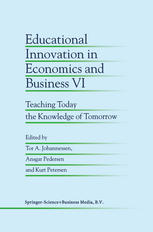

Most ebook files are in PDF format, so you can easily read them using various software such as Foxit Reader or directly on the Google Chrome browser.
Some ebook files are released by publishers in other formats such as .awz, .mobi, .epub, .fb2, etc. You may need to install specific software to read these formats on mobile/PC, such as Calibre.
Please read the tutorial at this link: https://ebookbell.com/faq
We offer FREE conversion to the popular formats you request; however, this may take some time. Therefore, right after payment, please email us, and we will try to provide the service as quickly as possible.
For some exceptional file formats or broken links (if any), please refrain from opening any disputes. Instead, email us first, and we will try to assist within a maximum of 6 hours.
EbookBell Team

4.1
80 reviewsBusiness education and business research has often been criticized by the business community, which claims that much of it is mainly directed at the establishment of teachers and researchers themselves, instead of distributing their knowledge to the business community. It may seem that many universities and other research institutions have turned into mere `knowledge manufacturers', where the emphasis is more on the output volume than on quality of relevance, with little or no consideration for the end users.
As universities and corporations attempt to prepare management to be alert to future changes, improved and even brand new teaching methodologies are required. The main focus of the present volume is on the distribution and selection of new knowledge. How can business educators deliver new knowledge to students and the business community more rapidly than before? How should we define the core business curriculum when new knowledge becomes old knowledge?